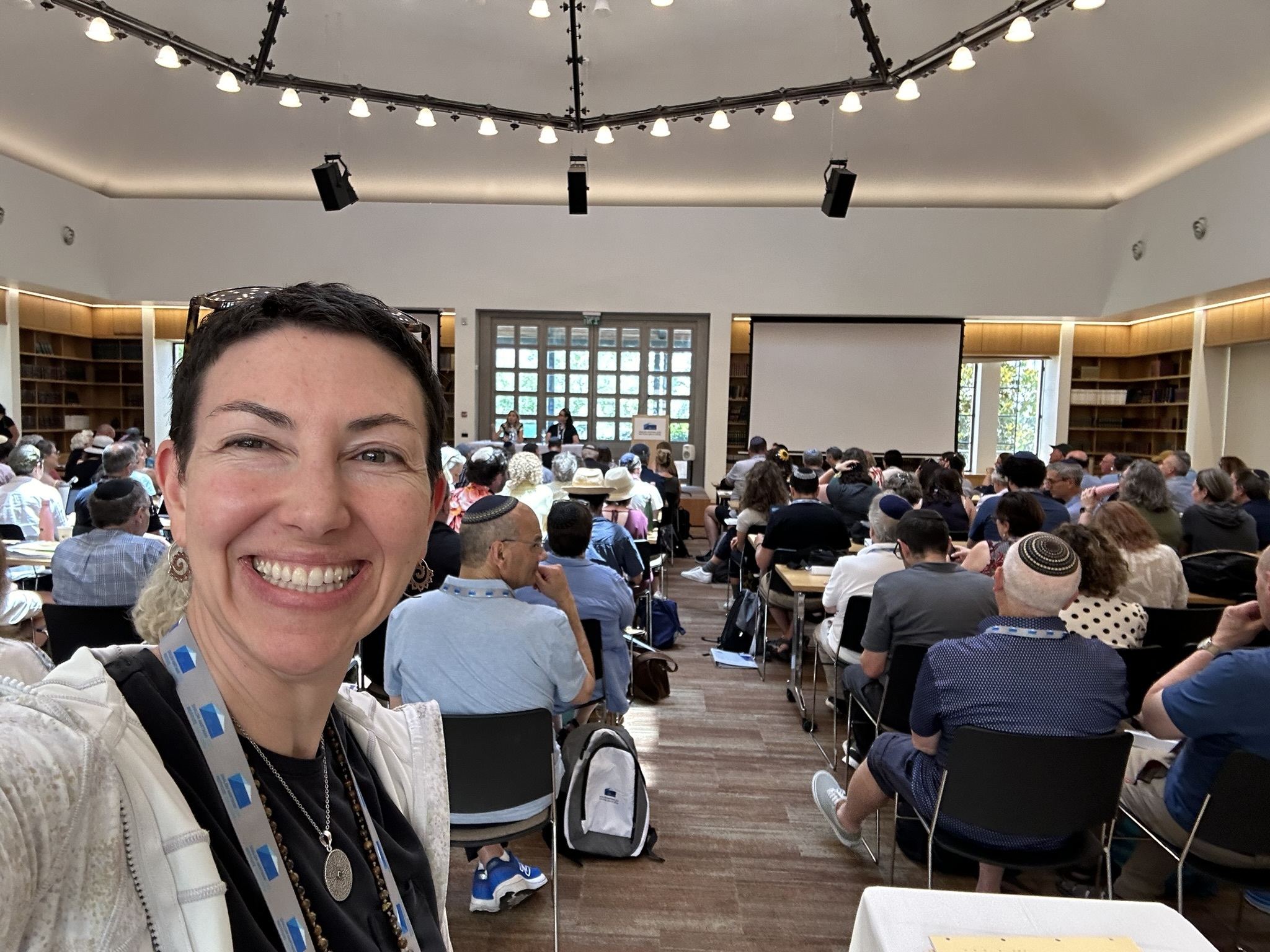Pictured: R’Lizzi with Karmit Arbel (our tour guide from 2022), and Tina Khatib, an Acco-based Muslim peace builder and chef at Beit Elfarasha.
…
Shalom! It’s Rabbi Lizzi, writing from Jerusalem. As many of you know, I’m here for a three-week Rabbinic Leadership Initiative study program with the Hartman Institute. It is an honor and a privilege to be among the 25 rabbis in this highly selective program that runs for three years (with retreats in the Summer and Winter), along with some of the smartest, most dynamic rabbis in our country and in Israel. I am so grateful to the Mishkan Community for supporting your rabbis’ spiritual and intellectual growth — the inevitable result will be deeper sermons, more interesting classes, and more thoughtful reflections during and beyond this program. In fact, if you’d like to contribute towards our continued learning via our Rabbinic Enrichment Fund, you can do so here!
There is certainly a sense of cognitive dissonance that comes along with being in Israel — that’s always true for me, but this year more than any other in the past. As you might imagine, between the savage Hamas attacks on Israelis on October 7th and ongoing holding of hostages on the one side, and on the other, the IDF’s destruction of most of Gaza’s homes and infrastructure, the massive death toll and displacement of Gazans…There is not much appetite for either people to talk about peace.
And yet, as historian Yuval Noah Harari said back in October to a journalist who asked what we can do to help right now:
“Israelis and Palestinians are too traumatized to hold the vision of coexistence and peace right now — what you can do for us is hold that vision so we have something to return to.”
That is what we have been doing at Mishkan since October. We’ve been told by some that it’s naive, but the way we see it — there is no alternative to the eventual coexistence of the two peoples indigenous to this land living here, side by side, in peace, dignity, freedom, and safety. The question is how many more people must die or kill in the name of security or freedom before leaders here will commit to solving the root causes of the violence using methods other than more violence.
Pictured: R’Lizzi with Karmit Arbel and Rabbi Tamar Elad-Applebaum, founder of the Tzion Community in Jerusalem, at the It’s Time rally in Tel Aviv Sunday, July 1st, 2024.
…
Yet what Harari said is both true and false. It is true that Americans can help by continuing to envision what we know is possible. But what’s false is the notion that Israelis and Palestinians are too traumatized to do it themselves. Certainly many are — who could fault them? But not all. Last Sunday, I attended the “It’s Time” peace event in Tel Aviv, with 6,000 Israelis and Palestinians committed to thisvision too. You can read more from NIF and watch the broadcast. You’ll hear both Hebrew and Arabic, from younger and older people, people who have lost children, parents, and siblings to this conflict over the decades and on October 7th — but have not lost hope. If these brave Palestinians and Israelis can envision making peace in this land based on mutual recognition and non-violence, who am I to call them naive?
Successful movements for justice and liberation over the generations and across the world owe their hard-won progress to the dreamers that never gave up hope. To reclaim one of the founding mottos of this place: If you will it, it is no dream.
Stay tuned for more reflections from my time here over the next few weeks. In the meantime, I’m sending you blessings.
Rabbi Lizzi in the Beit Midrash at the Hartman Institute, where she’ll be studying Torah, Rabbinic and Modern texts with 150 rabbis from around the world.




Thank you Rabbi Lizzi and Mishkan for reminding us of the power of collective hope and dreaming.